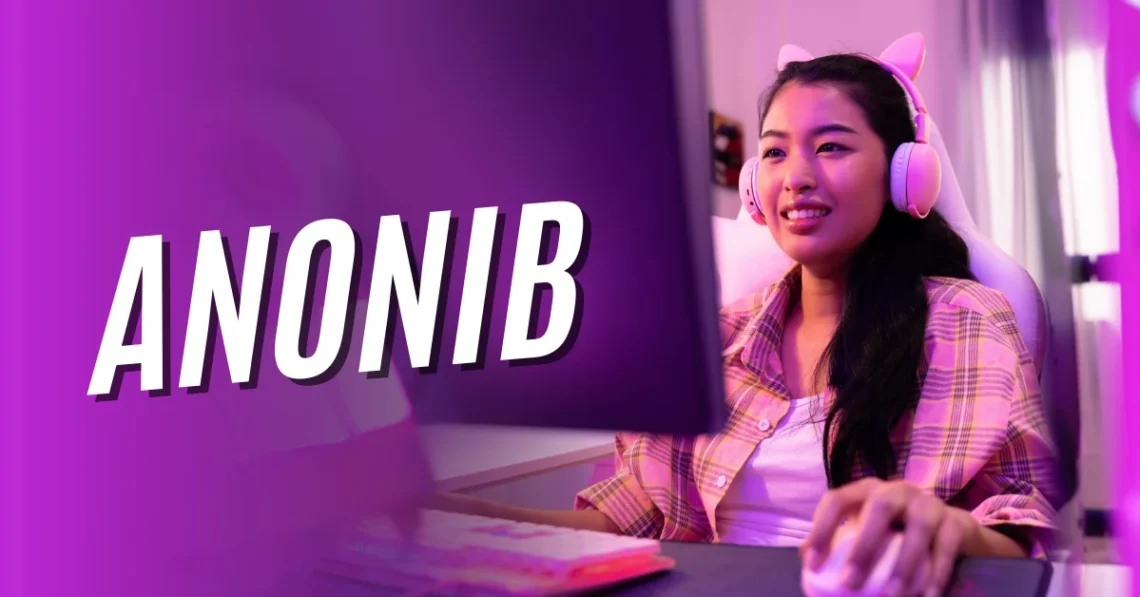1. What Is AnonIBs?
AnonIBs (short for Anonymous Image Board) was an online platform that allowed users to post images, videos, and discussions anonymously, similar in concept to forums like 4chan.
However, unlike traditional message boards, AnonIBs became infamous for hosting and sharing explicit or non-consensual content, particularly stolen or “leaked” personal photos. This reputation eventually led to the platform’s removal and shutdown by law enforcement in multiple countries.
At its core, AnonIBs functioned as a decentralized image-sharing community, where users could:
- Post pictures without revealing identity
- Comment or discuss anonymously
- Create “boards” around specific topics or regions
While some users originally intended it for harmless discussions, the lack of moderation made it a breeding ground for unethical activity, which later resulted in serious legal and moral consequences.
2. The Origin and Development of AnonIBs
The AnonIB platform first appeared in the mid-2000s, taking inspiration from Japanese image boards like 2channel and Futaba Channel.
Early Purpose:
- Share artistic or meme-based content anonymously
- Discuss niche interests or internet subcultures
- Provide a space for free speech outside mainstream media
What Went Wrong:
Over time, AnonIBs began to deviate from its original purpose.
The board’s lack of identity tracking or user verification meant that anyone could upload anything, including private and explicit materials.
Law enforcement agencies in the U.S., U.K., and the Netherlands have since cited AnonIB in investigations related to:
- Revenge porn
- Data leaks and privacy violations
- Distribution of illegal images
These controversies ultimately led to its global takedown and permanent disappearance from mainstream web access.
3. Why AnonIBs Became Controversial
a. Non-Consensual Content
One of the most damaging aspects of AnonIBs was the distribution of private and explicit photos taken from hacked accounts or stolen devices. These were often organized by region or name, targeting individuals—mostly women—without their knowledge or consent.
b. Lack of Regulation
Unlike moderated social media platforms (e.g., Reddit, Discord), AnonIBs allowed full anonymity, resulting in uncontrolled uploads. This made it nearly impossible to trace contributors or remove harmful content.
c. Law Enforcement Crackdowns
Numerous police investigations linked AnonIB boards to cyber exploitation cases, particularly in Europe and North America.
In 2018, the Dutch National Police seized AnonIB’s servers, marking its final shutdown. The authorities confirmed that the site facilitated the exchange of private images, including illegally obtained material.
d. The Ethical Fallout
The site’s closure reignited debates around internet freedom vs. digital ethics, questioning how much anonymity should be allowed online when it can be abused so easily.
4. The Legal Actions and Global Takedown
International Collaboration
After multiple complaints and cybercrime reports, Interpol and European law enforcement worked together to dismantle AnonIB’s infrastructure.
The Dutch National High Tech Crime Unit confirmed that AnonIB servers were confiscated and several users were arrested for uploading or trading illegal material.
U.S. and U.K. Responses
Authorities in the United States and United Kingdom issued public warnings about similar anonymous image-sharing networks. They emphasized that uploading or sharing private photos without consent is a criminal act under most jurisdictions.
Legal Consequences
Individuals caught participating in such activities faced:
- Heavy fines and imprisonment
- Permanent digital bans
- Mandatory registry on cybercrime lists
The case of AnonIBs serves as a powerful reminder of the legal risks involved in digital misconduct.
5. The Rise of Safer Alternatives
While AnonIBs is gone, the concept of anonymous communities still exists—but now with better security and moderation.
Modern Alternatives:
- Reddit (with moderation) – Provides open discussion forums while enforcing content policies.
- 4chan / 8kun – Retains anonymity but includes stricter posting guidelines and monitoring.
- Image hosting platforms like Imgur or Pixelfed – Focus on legal, artistic, and community-driven uploads.
Key Differences from AnonIB:
- Clear Terms of Service
- Transparent moderation systems
- Legal compliance with international digital privacy laws
These platforms emphasize responsible anonymity, giving users freedom of expression without enabling exploitation.
6. Lessons Learned from the AnonIBs Controversy
The story of AnonIBs highlights the double-edged nature of online anonymity. While it empowers free speech and self-expression, it also opens doors to abuse if unchecked.
Major Takeaways:
- Anonymity ≠ Impunity: Online behavior is still subject to law.
- Digital ethics matter: Sharing or reposting private material without consent is a serious offense.
- Cyber awareness is crucial: Always protect your data, passwords, and private media to prevent leaks.
- Platforms need accountability: Internet communities thrive only when freedom is balanced with responsibility.
The shutdown of AnonIBs symbolizes a major turning point in how the world views digital privacy, consent, and online safety. It remains a case study in the ongoing discussion about maintaining free internet spaces while protecting individual rights.
Conclusion
AnonIBs began as an anonymous image board that promised open sharing but spiraled into one of the most notorious cases of digital exploitation. Its eventual shutdown by global authorities underscores the growing importance of ethical responsibility online.
In today’s internet landscape, platforms are learning from these mistakes—prioritizing consent, transparency, and safety to prevent such abuses from happening again.
If you value online freedom, always remember: true digital liberty comes with accountability.
FAQs
Q1. What was AnonIBs originally created for?
It was designed as an anonymous image-sharing forum, inspired by 4chan-style boards.
Q2. Why was AnonIBs taken down?
Authorities shut it down due to non-consensual content sharing, privacy violations, and criminal misuse.
Q3. Is AnonIBs still accessible on the internet?
No. The site was permanently removed in 2018, and its servers were seized.
Q4. Are there safe alternatives to AnonIBs?
Yes. Platforms like Reddit, Imgur, and Pixelfed offer community-driven anonymity with ethical moderation.
Q5. What is the biggest lesson from the AnonIB case?
That anonymity must come with responsibility—privacy and consent are non-negotiable in any digital space.





